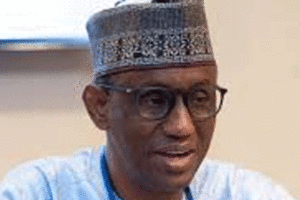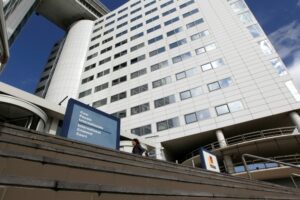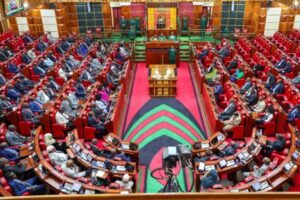
The National Association of Aircraft Pilots and Engineers (NAAPE) has challenged Abia North Senator, Orji Uzor Kalu, to immediately substantiate his claims that some pilots in Nigeria smoke Indian hemp and operate aircraft while under the influence of drugs with verifiable evidence or withdraw the statement.
NAAPE, in a statement by its public relations officer, Engr. Blessing Ahmadu, urged the former Abia State governor to present his evidence to the appropriate statutory government agencies – the Nigerian Civil Aviation Authority (NCAA) and the Nigerian Safety Investigation Bureau (NSIB), or issue an unreserved public withdrawal and apology to the nation’s aviators.
The statement further noted that, “NAAPE categorically and emphatically refutes the broad allegation that Nigerian pilots routinely fly under the influence of narcotics. These baseless claims, which constitute a malicious attack on the professionalism, integrity, and reputation of Nigerian aviation professionals, are not only false but represent a dangerous misrepresentation of the rigorous safety standards that govern Nigerian aviation operations.”
The association also noted that as the professional body representing all licensed pilots and aircraft engineers in Nigeria, NAAPE considers safety as the foremost priority in all aspects of aviation practice, noting that “Every pilot in the country is bound by strict regulatory, medical, and ethical standards established by the Nigerian Civil Aviation Authority, in line with International Civil Aviation Organisation (ICAO) requirements. These standards prohibit the use of any psychoactive substances and subject pilots to regular and random drug and alcohol testing as part of their medical certification and recurrent assessment processes. We also express our confidence in the safety oversight functions of the NCAA and its leadership, whose consistent enforcement of global best practices continues to uphold the integrity of the Nigerian aviation system.”
Describing the allegations as not true, NAAPE while shedding more light on the operations of the pilot and aircraft, said “It is inaccurate and misleading to suggest that pilots routinely engage in drug use or report to duty under the influence of such substances. Aviation operations in Nigeria involve multiple layers of oversight, including pre-flight medical checks, recurrent simulator training, random toxicology screening, and continuous monitoring by both operators and regulators. The suggestion that aircraft are being flown by intoxicated pilots undermines public confidence and the hard-earned integrity of Nigerian aviation professionals.”
NAAPE further noted that Nigeria’s air transport sector remains one of the safest in Africa, a record sustained through strict adherence to international safety standards and continuous professional development and noted that any isolated case of misconduct by an individual, if established, is swiftly met with disciplinary and regulatory actions by the relevant authorities.
Also, while speaking on behalf of the association, Captain Bunmi Gindeh, President of NAAPE, stated:
“It is unacceptable to make unsubstantiated claims against a community of professionals. The burden of proof lies with whoever makes such an allegation, and it must be supported by evidence or withdrawn with a public apology. Everyone appears to speak as an aviation expert in this country except the professionals who are trained and certified to do the job. For too long, individuals outside the industry have attempted to define its operations, and one would have expected a former airline operator to understand this better. Sadly, this is not the case.
“Our members undergo some of the most rigorous medical, psychological, and professional screening anywhere in the world. To broadly generalise and suggest that Nigerian pilots operate aircraft while under the influence of drugs is not only false but deeply unfair to the thousands of disciplined professionals who dedicate their lives to ensuring safe skies. We take great pride in our safety record and remain committed to maintaining the highest standards of professionalism.”





